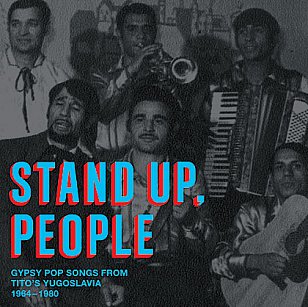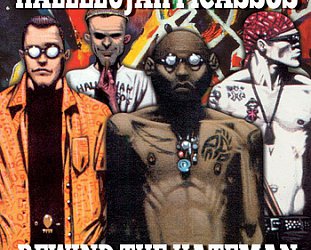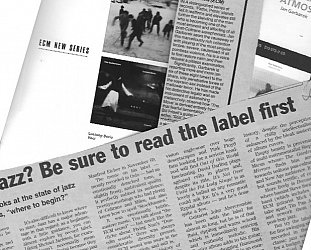Graham Reid | | 1 min read
Selime Bajrami: Gilava Amare Romenge

Our rationale here is that we did not so much "miss" this, as just didn't write about it when it was released in New Zealand during the last quarter of 2013.
And what is it? Well, it's more the newly hip sound of the Balkans. New Zealand's various "gypsy" groups and Balkanista (who played at Womad 2014) have been mining this particularly danceable line for a couple of years.
And frankly much of it -- unless you are there drunk on the dancefloor -- is either a chore on record, or rather more than slighly racist, as we have politely pointed out.
So let's be honest here: "world music" is not such a morally superior form (over Western pop) that it doesn't have its fads and phases.
In my lifetime we've fought the Cajun wars then Cuban skirmishes, then been almost diverted into Portuguese fado when really it was Sahara blues unexpected coming down the off-ramp at night with headlights off . . .
And more recently it's been the sounds of the Balkans in what we might call Gypsy folk-pop.
There are hip big-city musicians with university degrees who get down with the earthy sounds of Roma music in the same way some educated secular humanists do with God-fearin' alt.country and that old time religion.
But . . . and this the Very Big But with this one: This collection – subtitled “Gypsy Pop Songs From Tito's Yugoslavia 1964-1980” – throws us right back to the authentic source material which immediately impresses by not being quite as freneticaly booze-driven as its current practitioners.
As with so many such compilations this one is pulled together by Londoners (Philip Knox and Nathaniel Morris of Vlax Records) and they have astute ears.
So here's a collection which neither favor current trends nor famous names (although Esma Redzepova and Saban Bajramovic are included) but allows exceptional obscurities (Bedrije Misin was never a household name, not even in Kosovo) and songs with references to mariachi music, Bollywood, weird Eastern psychedelia and so much more.
It's kinda nuts. But terrific at the same time.
This is sometimes heart-aching and occasionally very strange, but -- by being focused on a period when this music flourished and was encouraged -- it has a wonderful coherence.
So as the beats went on there was no sense of impending repression (part of the contract of being Roma anyway) or imminent annihilation.
This exceptional, vibrant and vigorous 19-song collection is Gypsy pop . . . which frequently rocks out.
It's a rarity: music from an archive which still sounds alive.





post a comment